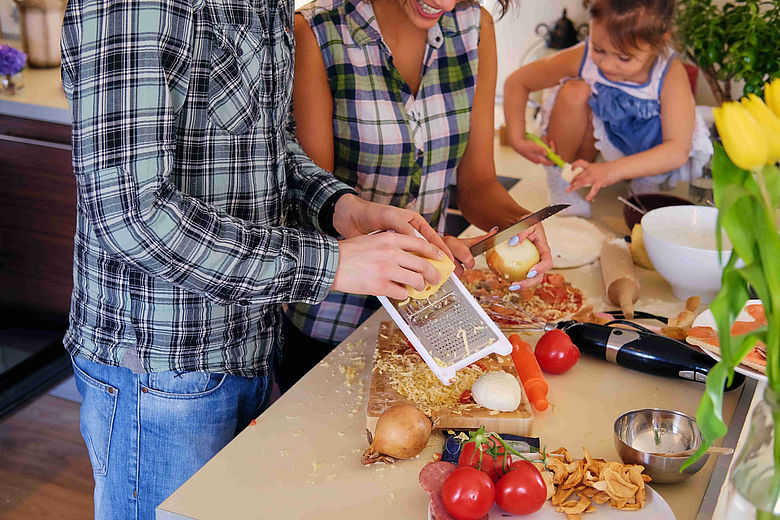Many of us find the idea of ‘food waste’ triggering. We feel the need to finish every morsel of food on our plates (and kids’ plates).
We feel guilty for throwing away ‘perfectly good food’ even if that food offers zero nutritional value (and is inconducive to your results). This feeds into our relationship with food.
We know that, that packet of Tim Tams, bag of chips or giant-sized Easter chocolate will not serve our goals. So, if these are trigger foods for you, get rid of them.
Similarly, parents feel the need to act as a bin for food their kids don’t eat. How accurate is your food diary if you are not factoring in food eaten from your child’s plate? Research shows that over 80% of parents (mothers in particular) eat food from their kids’ plate unaware.
No matter how strong your resolve, if food is available, you will eventually eat it. It’s about choice, willpower has nothing to do with it.
But what to do?
Sometimes we need to do things that go against our conditioning. We need to do things that go against the norm.
Reassess portion sizes of your child’s food if you are constantly finishing their meals. Similarly, eat your own food when your child is eating.
As an exercise in awareness, put all the scraps of your child’s food you would have eaten into a bowl or container. This puts into perspective all the extra, unaccounted food you may be consuming outside of your regular meals.
Nutrition starts at the source, If you know there are trigger foods that are unconducive to your goals, don’t buy them at the supermarket. Completely avoid the confectionary, chip or biscuit aisle. If the food is not in your possession, you will not be able to eat it.
Have the conversation with family, friends and others in your circle of influence about your nutritional goals. Encourage them to not gift you problematic foods and ask them not to encourage these foods.
Should you find these foods in your possession, either re-gift them, or move them somewhere less accessible.
Should all else fail, get rid of the problematic food. Throw it in the bin. It will better serve you gone completely instead of you eating it and dealing with the negative impact that food will have on your mental state and physical wellbeing.
What’s worse? Wasting food or wasting your hard-earned results?
You can’t out train a poor diet.
Are you our next success story?
Enjoy a two week FREE experience pass, when you book a free consultation today.

